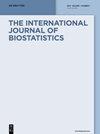聚类随机试验的相对风险估计:广义估计方程方法的比较
IF 1.2
4区 数学
引用次数: 19
摘要
在随机对照试验(rct)中,相对危险度已成为衡量二元结果治疗效果的常用指标。使用对数二项回归可以直接估计相对风险,但模型可能无法收敛。有其他方法可用于估计相对风险,但这些方法通常仅对独立数据进行了评估。由于其中一些方法目前正在集群随机对照试验中应用,因此有必要研究它们在这种情况下的性能。我们比较了对数二项回归和三种替代方法(扩展逻辑回归、对数泊松回归和对数正态回归)在集群随机对照试验中的相对风险估计。使用具有独立或可交换工作关联结构的广义估计方程(GEEs)来考虑聚类。我们的大型模拟研究结果表明,对数二项GEE对于聚类数据通常表现良好,但正如预期的那样存在收敛问题。对数泊松曲线和对数正态曲线在I型误差、偏差和覆盖范围等方面都具有一定的优势。扩展后的逻辑GEE性能较差,且对选择的工作关联结构比较敏感。关于治疗有效性的结论往往因使用的方法而异,这突出了预先指定分析方法的必要性。我们建议在日志二项式GEE不能收敛的情况下,预先指定使用日志泊松GEE或日志正态GEE。本文章由计算机程序翻译,如有差异,请以英文原文为准。
Relative Risk Estimation in Cluster Randomized Trials: A Comparison of Generalized Estimating Equation Methods
Relative risks have become a popular measure of treatment effect for binary outcomes in randomized controlled trials (RCTs). Relative risks can be estimated directly using log binomial regression but the model may fail to converge. Alternative methods are available for estimating relative risks but these have generally only been evaluated for independent data. As some of these methods are now being applied in cluster RCTs, investigation of their performance in this context is needed. We compare log binomial regression and three alternative methods (expanded logistic regression, log Poisson regression and log normal regression) for estimating relative risks in cluster RCTs. Clustering is taken into account using generalized estimating equations (GEEs) with an independence or exchangeable working correlation structure. The results of our large simulation study show that the log binomial GEE generally performs well for clustered data but suffers from convergence problems, as expected. Both the log Poisson GEE and log normal GEE have advantages in certain settings in terms of type I error, bias and coverage. The expanded logistic GEE can perform poorly and is sensitive to the chosen working correlation structure. Conclusions about the effectiveness of treatment often differ depending on the method used, highlighting the need to pre-specify an analysis approach. We recommend pre-specifying that either the log Poisson GEE or log normal GEE will be used in the event that the log binomial GEE fails to converge.
求助全文
通过发布文献求助,成功后即可免费获取论文全文。
去求助
来源期刊

International Journal of Biostatistics
Mathematics-Statistics and Probability
CiteScore
2.30
自引率
8.30%
发文量
28
期刊介绍:
The International Journal of Biostatistics (IJB) seeks to publish new biostatistical models and methods, new statistical theory, as well as original applications of statistical methods, for important practical problems arising from the biological, medical, public health, and agricultural sciences with an emphasis on semiparametric methods. Given many alternatives to publish exist within biostatistics, IJB offers a place to publish for research in biostatistics focusing on modern methods, often based on machine-learning and other data-adaptive methodologies, as well as providing a unique reading experience that compels the author to be explicit about the statistical inference problem addressed by the paper. IJB is intended that the journal cover the entire range of biostatistics, from theoretical advances to relevant and sensible translations of a practical problem into a statistical framework. Electronic publication also allows for data and software code to be appended, and opens the door for reproducible research allowing readers to easily replicate analyses described in a paper. Both original research and review articles will be warmly received, as will articles applying sound statistical methods to practical problems.
 求助内容:
求助内容: 应助结果提醒方式:
应助结果提醒方式:


